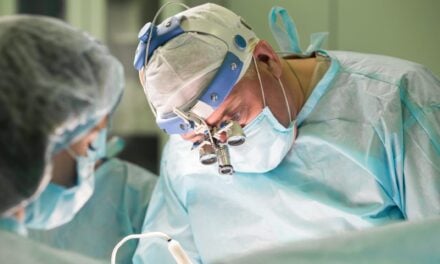For women undergoing autologous breast reconstruction—reconstruction using the patient’s own tissues, rather than implants—the risks of overall and specific complications are increased at higher body mass index (BMI) levels, reports the March issue of Plastic and Reconstructive Surgery, the official medical journal of the American Society of Plastic Surgeons (ASPS).
“Our study clarifies the impact of high BMI as a risk factor for adverse outcomes of autologous breast reconstruction,” says senior author Merisa Piper, MD, a plastic and reconstruction surgeon at University of California, San Francisco. “It also suggests that, among patients with obesity, losing weight before surgery might lower the risk of complications.”
How BMI Affects Autologous Breast Reconstruction
Autologous breast reconstruction, typically using a flap of tissue from the abdomen, is an alternative for reconstruction after mastectomy for breast cancer. Autologous reconstruction offers advantages including stable breast reconstruction with fewer surgical procedures, in less time, and at lower cost, compared to implant-based reconstruction.
However, not all patients are optimal candidates for this procedure: risk factors for adverse outcomes include smoking, uncontrolled diabetes, and high BMI. Despite previous studies, the impact of high BMI on outcomes of autologous breast reconstruction remain unclear.
Piper and her colleagues analyzed the impact of BMI on outcomes of autologous reconstruction in 365 patients (545 breasts) between 2004 and 2021. All patients underwent microvascular breast reconstruction using an abdominal-based flap. Complications were assessed for patients in different BMI categories, ranging from normal weight (less than 25 kg/m2), to overweight (25 to 29.9 kg/m2), to obese (30 kg/m2 or higher).
Complication Risks Affected at Different BMI Cutoffs
Several types of complications increased at distinct levels of BMI, especially in the obese range. The risk of any complication increased at a BMI of 30 kg/m2 or higher. More severe obesity—BMI 35 kg/m2 or higher—was associated with increased rates of unplanned repeat surgery, including wound breakdown requiring reoperation.
Risk of infection requiring oral antibiotics increased at BMI 25 kg/m2 or higher, while infections requiring intravenous antibiotics increased at BMI 30 kg/m2 or higher. Higher BMI levels were also associated with increased rates of complications related to the abdominal donor flap, including infection and wound-healing problems.
Further analyses suggested optimal BMI cutoff point of 32.7 kg/m2 to minimize the occurrence of any breast complication and 30.0 kg/m2 for any abdominal complication. With a BMI of 32.7 kg/m2, the risk of breast complications was similar to that associated with current smoking.
The study demonstrates “a robust trend” whereby higher BMI levels are associated with increased complication rates for women undergoing autologous breast reconstruction. The findings suggest that targeting specific levels of weight loss before surgery might help to avoid postoperative complications.
“By quantifying the change in risk profile associated with a given change in BMI, our results can be used clinically to set evidence-based preoperative weight-loss goals for patients,” Piper and her coauthors conclude. They emphasize that further studies would be needed to specifically evaluate the effects of weight loss before surgery.




